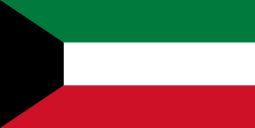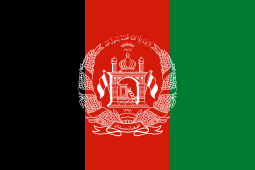Major non-NATO ally
Major non-NATO ally | |
|---|---|
 United States in green Major non-NATO ally in orange | |
| Headquarters | Washington, D.C |
| Type | Military alliances together with the United States |
| Members |
16 countries
1 de facto country
|
| Leaders | |
| Donald Trump | |
| James Mattis | |
| Establishment | 1989 |
Major non-NATO ally (MNNA) is a designation given by the United States government to close allies who have strategic working relationships with U.S. Armed Forces but are not members of the North Atlantic Treaty Organization (NATO). While the MNNA status does not automatically include a mutual defense pact with the United States, it does confer a variety of military and financial advantages that otherwise are not obtainable by non-NATO countries.
History
MNNA status was first created in 1989 when section 2350a, otherwise known as the Sam Nunn Amendment, was added to Title 10 (Armed Forces) of the United States Code by Congress.[1] It stipulated that cooperative research and development agreements could be enacted with non-NATO allies by the Secretary of Defense with the concurrence of the Secretary of State. The initial MNNAs were Australia, Egypt, Israel, Japan, and South Korea.
In 1996, major non-NATO allies received additional military and financial benefits when section 2321k was added to Title 22 (Foreign Relations) of the U.S. Code (also known as section 517 of the Foreign Assistance Act of 1961), which added MNNAs to many of the same exemptions from the Arms Export Control Act that were enjoyed by NATO members. It also authorized the President to designate a nation as an MNNA thirty days after notifying Congress.[2] When enacted, the statute designated the initial five countries as major non-NATO allies, and added Jordan and New Zealand to the list.
U.S.-New Zealand strategic and military cooperation suffered a setback after the breakdown of the ANZUS alliance in 1984 over nuclear ship entry. The designation of New Zealand as an MNNA reflected the warming of relations between the two. In June 2012 New Zealand signed a partnership arrangement with NATO further strengthening and consolidating relations.
When Congress enacted on September 30, 2002 the Foreign Relations Authorization Act for FY 2003, it required that Taiwan be "treated as though it were designated a major non-NATO ally."[3] Despite some initial misgivings about Congress's perceived intrusion into the President's foreign affairs authority, the Bush administration subsequently submitted a letter to Congress on August 29, 2003, designating Taiwan as a major non-NATO ally.[3]
In 2014, a bill was introduced to the United States Congress to grant major non-NATO ally status to Georgia, Moldova, and Ukraine. In May 2015, US President Barack Obama declared his intention to make Tunisia a non-NATO ally while hosting his Tunisian counterpart Beji Caid Essebsi at the White House.
The designation of certain countries as major non-NATO allies has not been without controversy from politicians and scholars. Luke Coffey, director of foreign policy studies at the Heritage Foundation, released a report in November 2012 stating that Argentina no longer deserved the status, due to poor policy-making and perceived anti-Americanism by the then-incumbent Kirchner administration.[4] In June 2017, US Representatives Ted Poe (R-TX) and Rick Nolan (D-MN) introduced H.R. 3000, a bill to revoke Pakistan's status as an MNNA, citing inadequate counterterrorism policies, the harboring of Osama bin Laden and Pakistani support for the Taliban.[5]
Benefits
Nations named as major non-NATO allies are eligible for the following benefits:
- entry into cooperative research and development projects with the Department of Defense (DoD) on a shared-cost basis
- participation in certain counter-terrorism initiatives
- purchase of depleted uranium anti-tank rounds
- priority delivery of military surplus (ranging from rations to ships)
- possession of War Reserve Stocks of DoD-owned equipment that are kept outside of American military bases
- loans of equipment and materials for cooperative research and development projects and evaluations
- permission to use American financing for the purchase or lease of certain defense equipment
- reciprocal training
- expedited export processing of space technology
- permission for the country's corporations to bid on certain DoD contracts for the repair and maintenance of military equipment outside the United States
Major Strategic Partner
In December 2014 the US Congress passed the US—Israel Major Strategic Partner Act.[6] This new category is one notch above the Major Non-NATO Ally classification and adds additional support for defense, energy, and strengthen cooperation business and academics.[7] The bill additionally calls for the US to increase their war reserve stock in Israel to US$1.8 billion.[8]
List of MNNAs
The following countries have been designated as major non-NATO allies of the United States (in order of their appointment):[9][10]
Named by George H. W. Bush

Named by Bill Clinton
Named by George W. Bush
 Bahrain (2002)[14]
Bahrain (2002)[14] Philippines (2003)[15]
Philippines (2003)[15] Taiwan (de facto) (2003)[3]
Taiwan (de facto) (2003)[3] Thailand (2003)[16]
Thailand (2003)[16] Kuwait (2004)[17]
Kuwait (2004)[17] Morocco (2004)[18]
Morocco (2004)[18] Pakistan (2004)[19]
Pakistan (2004)[19]
Named by Barack Obama
 Afghanistan (2012)[20][21]
Afghanistan (2012)[20][21] Tunisia (2015)[22]
Tunisia (2015)[22]
Other proposed MNNAs
Other states have been proposed as future major non-NATO allies. Following the 2014 Crimean Crisis, members of Congress proposed designating Ukraine, Moldova, and Georgia as major non-NATO allies.[23] During a 2015 Camp David summit with the Gulf Cooperation Council states, the Obama administration considered designating Saudi Arabia, the United Arab Emirates, Oman, and Qatar as MNNAs.[24]
References
- ↑ Title 10, section 2350a of U.S. Code
- 1 2 22 U.S.C. § 2321k
- 1 2 3 Shirley Kan (December 2009). Taiwan: Major U.S. Arms Sales Since 1990. DIANE Publishing. p. 52. ISBN 978-1-4379-2041-3.
- ↑ "Argentina No Longer Deserves to Be a Major Non-NATO Ally of the U.S.". Retrieved 31 July 2017.
- ↑ "CONGRESSMEN POE AND NOLAN INTRODUCE BILL REVOKING PAKISTAN'S MNNA STATUS". Retrieved 31 July 2017.
- ↑ "Congress enshrines Israel in a new class of ally". The Jerusalem Post - JPost.com. Retrieved 20 May 2016.
- ↑ "US Congress passes Israel strategic partnership bill". The Times of Israel. Retrieved 20 May 2016.
- ↑ "US Congress passes Israel strategic partnership bill". Retrieved 20 May 2016.
- ↑ "Code of Federal Regulations - Title 22 - Foreign Relations - § 120.32Major non-NATO ally.". United States Government Publishing Office. Retrieved 2017-02-04.
- ↑ "22 USC 2321k: Designation of major non-NATO allies". United States Government Publishing Office. Retrieved 2017-02-04.
- 1 2 3 4 5 "U.S. declares Afghanistan major non-NATO ally to ensure the nation gets defense aid beyond 2014 troop withdrawal - Daily Mail Online". Mail Online. 7 July 2012. Retrieved 20 May 2016.
- ↑ Scott Stearns (2012-07-07). "Afghanistan Designated Major US Ally During Clinton Visit to Kabul". Voanews.com. Retrieved 2014-01-31.
- ↑ "Overview of U.S. Policy Toward South America and the President's Upcoming Trip to the Region". Retrieved 20 May 2016.
- ↑ "Bahrain Joins Iran in Opposing Strike". Fox News. Associated Press. August 18, 2002. Retrieved July 7, 2012.
- ↑ "Bush 'upgrades' Philippines". CNN. May 20, 2003. Retrieved July 7, 2012.
- ↑ Despeignes, Peronet (October 20, 2003). "U.S. wants APEC agenda to include security issues". USA Today. Retrieved July 7, 2012.
- ↑ "US tightens military relationship with Kuwait". Associated Press. January 15, 2004. Retrieved July 7, 2012. (subscription required)
- ↑ "US rewards Morocco for terror aid". BBC News. June 4, 2004. Retrieved July 7, 2012.
- ↑ http://www.southasiaanalysis.org/papers10/paper959.html South Asia Analysis Group Archived April 24, 2012, at the Wayback Machine.
- ↑ "Hillary Clinton says Afghanistan 'major non-Nato ally'". BBC News. July 7, 2012. Retrieved July 7, 2012.
- ↑ https://www.state.gov/secretary/rm/2012/08/196675.htm Archived August 25, 2012, at the Wayback Machine.
- ↑ "Designation of Tunisia as a Major Non-NATO Ally". U.S. Department of State. Retrieved 20 May 2016.
- ↑ "US Congress passes Russia sanctions, arms for Ukraine". Yahoo News. 14 December 2014. Retrieved 14 May 2015.
- ↑ Toosi, Nahal (14 May 2015). "U.S. may raise Arab states to 'major' ally status". Politico. Retrieved 14 May 2015.
